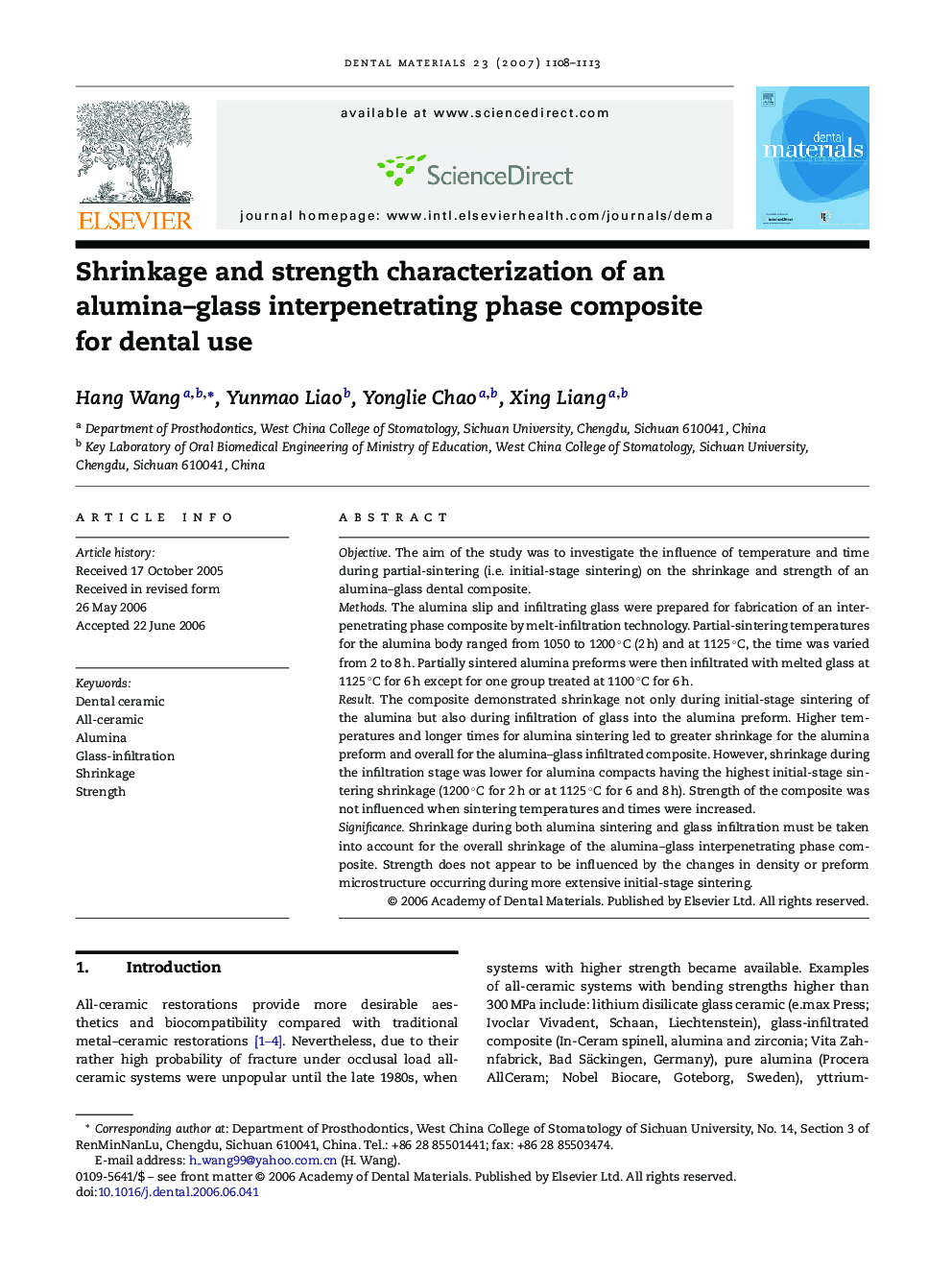| Article ID | Journal | Published Year | Pages | File Type |
|---|---|---|---|---|
| 1422963 | Dental Materials | 2007 | 6 Pages |
ObjectiveThe aim of the study was to investigate the influence of temperature and time during partial-sintering (i.e. initial-stage sintering) on the shrinkage and strength of an alumina–glass dental composite.MethodsThe alumina slip and infiltrating glass were prepared for fabrication of an interpenetrating phase composite by melt-infiltration technology. Partial-sintering temperatures for the alumina body ranged from 1050 to 1200 °C (2 h) and at 1125 °C, the time was varied from 2 to 8 h. Partially sintered alumina preforms were then infiltrated with melted glass at 1125 °C for 6 h except for one group treated at 1100 °C for 6 h.ResultThe composite demonstrated shrinkage not only during initial-stage sintering of the alumina but also during infiltration of glass into the alumina preform. Higher temperatures and longer times for alumina sintering led to greater shrinkage for the alumina preform and overall for the alumina–glass infiltrated composite. However, shrinkage during the infiltration stage was lower for alumina compacts having the highest initial-stage sintering shrinkage (1200 °C for 2 h or at 1125 °C for 6 and 8 h). Strength of the composite was not influenced when sintering temperatures and times were increased.SignificanceShrinkage during both alumina sintering and glass infiltration must be taken into account for the overall shrinkage of the alumina–glass interpenetrating phase composite. Strength does not appear to be influenced by the changes in density or preform microstructure occurring during more extensive initial-stage sintering.
